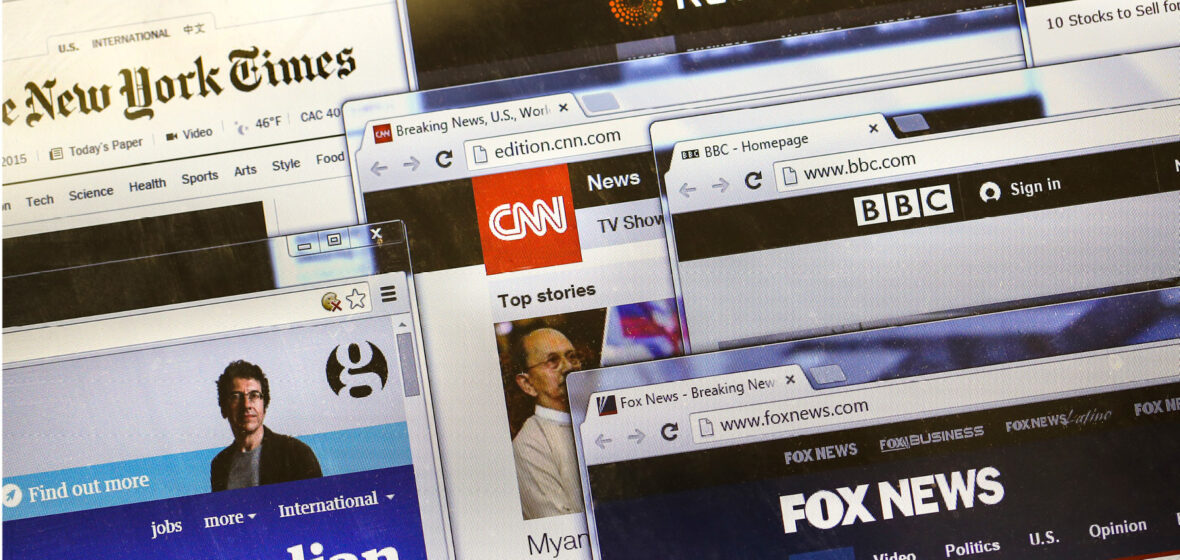CEO of the Fox Corporation Lachlan Murdoch’s defamation lawsuit against news site Crikey will be the first test of Australia’s new public interest defence.
Murdoch’s lawyers claimed in August this year that an article written by Crikey’s politics editor Bernard Keane defamed the Murdoch family by calling them “unindicted co-conspirators” of former US President Donald Trump following the January 2021 US Capitol riots.
Private Media, the owner of Crikey, has refuted the claim and raised three defences including implied freedom of political communication, failure to accept reasonable offer of amends, and the new public interest defence. This is the first time the public interest defence has been tested in Australia since it was introduced in July last year.
David Rolph, Professor at the University of Sydney Law School and media law expert spoke to LSJ about the case and the new public interest defence.
“The new public interest defence is consciously modelled off section four of the Defamation Act of 2013, which is the legislation that applies in England and Wales,” said Rolph.
“The previous statutory qualified privileged defence should have covered a lot of this territory but in application it didn’t seem to.
“So, there was a push for a broad-based public interest defence because the perception was that this English defence worked more effectively.”
Rolph explained the public interest defence turns upon the reasonableness of the publisher’s belief that the matter relates to a matter of public interest. Unlike the English provision, the Australian provision requires several factors to be taken into account when assessing the reasonableness of the publisher’s belief.
“The defence is entirely untested, the real test will be in how this defence to defamation is applied,” said Rolph.
“Until judges start to do that, we can’t have any real sense about how the public interest defence will play out.”
Whether the Crikey case will be a good vehicle for testing the new public interest defence remains to be seen.
“Sometimes you’d hope it would be a good vehicle, but it may not necessarily turn out to be.”
Rolph said the weakest defence put forward by Private Media is the implied freedom of political communication, otherwise known as the Lange qualified privilege defence, which turns 25 this year.
“It’s been frequently pleaded but is very rarely successful,” he said.
“It’s a limited defence that applies in cases that relate to government or political matters. It’s probably outflanked by the new public interest defence which applies to both political and non-political matters of public interest.”
Beyond defences, Rolph noted that the key issue will be determining what meanings are conveyed in the Crikey article.
“There’s an argument, based along US lines, that the ordinary reasonable reader wouldn’t understand this article in a defamatory sense because it’s hyperbolic,” said Rolph.
“It will be interesting to see how an Australian court receives that.
“While the law in Australia has changed slightly, it’s long be the case that it’s better to be a plaintiff than a defendant in a defamation action.”
CEO of Private Media Will Hayward denied that the article was defamatory and said the company will continue to hold rich and powerful people to account.
“We do not believe that the average Australian of reasonable intelligence would have read our article and interpreted it in the way Mr Murdoch claims,” said Hayward.
“It is our opinion that Fox News actively supported and promoted a concerted attempt to jeopardise American democracy,” he said.
“That attempt began with Donald Trump’s false claims of a ‘stolen’ election and culminated in the violent mob assault on the US Capitol on January 6, 2021.”
In a preliminary hearing, Murdoch’s barrister Sue Chrysanthou SC criticised Private Media’s behaviour in recent months.
“It would appear how the respondents are portraying the proceedings and are portraying what is, in fact, in issue is very different to what the pleaded issues are,” said Chrysanthou.
“That has had a number of effects, including the no doubt increase in subscriptions and money paid to a GoFundMe account that has been set up, but also directing ridicule and hatred towards my client,” she said.
Chrysanthou accused Crikey of “publicly claiming martyrdom” and mocking her client on public billboards.
Justice Wigney set a nine-day trial for 27 March 2023 and directed the parties to attend mediation before a registrar.




